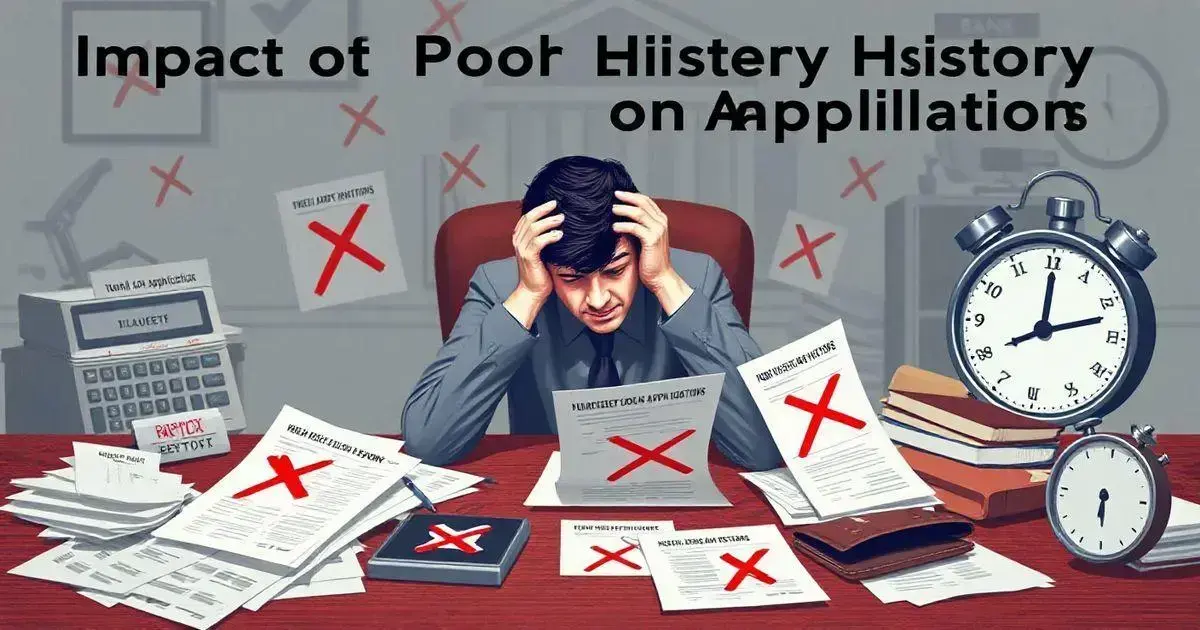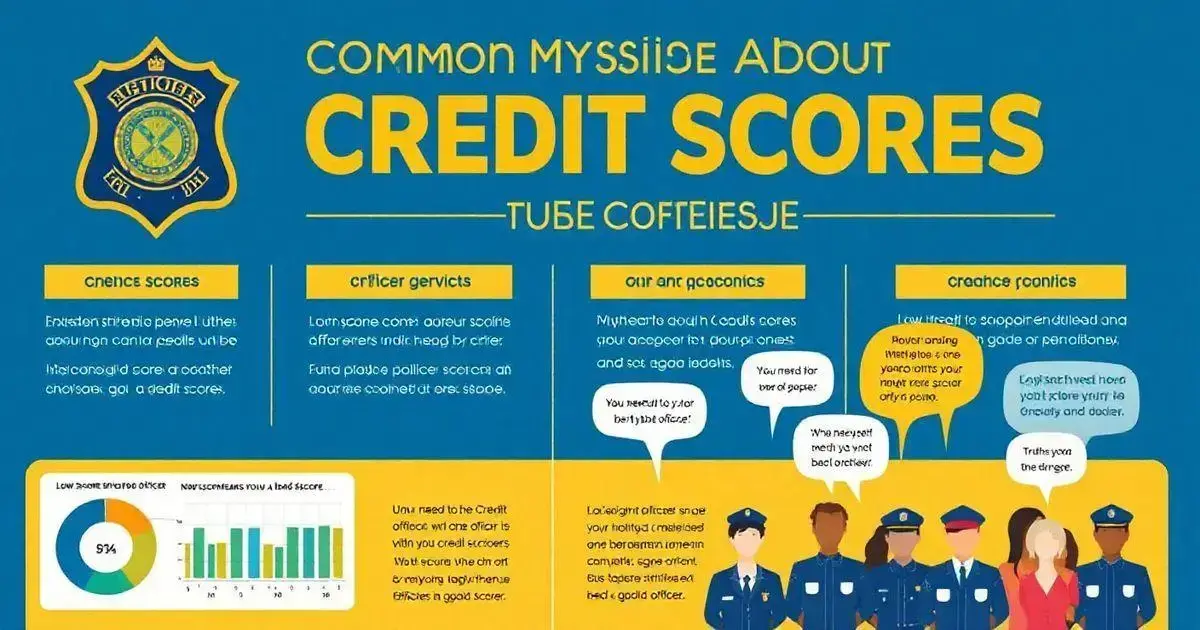The minimum credit score to be a police officer is one of the key factors in the selection process for any law enforcement agency. It reflects a candidate’s financial responsibility and helps departments assess their integrity and reliability.
In addition to meeting physical and educational requirements, financial history can significantly impact your success in the hiring process. Maintaining good financial habits is crucial to ensure you’re ready for the challenges of police recruitment.
If you’re preparing to become a police officer, understanding these qualifications and how they apply to you is vital. Ready to discover how to improve your chances of success? Keep reading!
Police Officer Qualifications
The qualifications for police officers are essential to ensure that candidates are equipped to serve and protect the community.
Generally, applicants must meet a few key requirements. First, they need to be at least 21 years old and possess a valid driver’s license. Additionally, a high school diploma or equivalent is necessary, although many departments prefer or require a college degree in criminal justice or a related field.
Another critical aspect of police officer qualifications is physical fitness. Most police departments have specific physical standards that candidates must meet, which often include tests for strength, endurance, and agility. Moreover, candidates undergo background checks to assess their criminal history, creditworthiness, and overall integrity.
A clean legal record and a suitable credit score are typically necessary as they reflect a candidate’s responsibility and ability to make sound decisions.
Understanding the minimum credit score to be a police officer is an important step in preparing for the application process. Many departments take financial history seriously, and meeting the minimum credit score to be a police officer can improve a candidate’s chances of success.
Fulfilling these qualifications is not just about meeting basic criteria; it’s also about demonstrating a commitment to upholding the law and serving the community with honor.
Why Credit Score Matters for Police Candidates

A good credit score is crucial for police candidates. Why? Police officers need to make decisions that affect the public’s safety and trust. A candidate’s credit score can reflect their responsibility and integrity. Poor financial habits might indicate a lack of self-control, which could lead to compromised decisions as an officer.
Additionally, many police departments check your credit history during the hiring process. If you have a low credit score, it may raise concerns about your ability to handle sensitive information and authority effectively.
Understanding the minimum credit score to be a police officer is an essential part of the application process. This score serves as a measure of your financial responsibility and overall preparedness.
Maintaining a good credit score not only proves your trustworthiness but also enhances your chances of being hired. Meeting the minimum credit score to be a police officer demonstrates to departments that you are reliable, committed, and capable of managing both financial and ethical responsibilities.
Minimum Credit Score Requirements by State
The minimum credit score to be a police officer varies by state, reflecting the priorities of local law enforcement agencies. While some states may require a score of 650, others are more flexible depending on a candidate’s overall qualifications.
Departments often view financial stability as a key sign of responsibility. States like California, Texas, and Florida tend to have stricter credit requirements to ensure candidates can handle sensitive situations effectively.
Researching your state’s credit expectations is essential if you’re planning to become a police officer. Meeting the minimum credit score to be a police officer demonstrates financial responsibility and can improve your chances of being hired.
Impact of Poor Credit History on Applications

Having a poor credit history can significantly impact your chances of becoming a police officer. Many departments conduct thorough background checks, including reviewing credit reports.
If candidates have a history of late payments, defaults, or bankruptcies, it may raise concerns about their judgment and decision-making skills. This is why understanding the minimum credit score to be a police officer is essential.
A low credit score can affect not just hiring decisions but also an officer’s ability to handle sensitive information and ethical responsibilities. Many departments value financial stability as a key trait. Maintaining a strong credit score demonstrates responsibility and decision-making skills, aligning with the minimum credit score to be a police officer requirements many agencies expect.
Aspiring police officers should prioritize improving and maintaining a healthy credit history. A strong financial record reflects reliability and integrity, qualities that are vital in law enforcement careers.
How to Improve Your Credit Score
Improving your credit score is essential for aspiring police officers. Start by regularly checking your credit report for errors that could negatively impact your score. Ensuring accuracy gives you better control over your financial health and shows agencies that you’re proactive. Understanding the minimum credit score to be a police officer can help guide your efforts.
Pay your bills on time to show creditors that you’re financially responsible. If you have debt, focus on paying it down consistently. Avoid using too much of your available credit, as high credit utilization can harm your score. These habits will strengthen your financial profile and improve your chances during the hiring process.
Consider becoming an authorized user on another person’s credit card with good credit habits. This can boost your credit score without taking on significant debt. Following these steps will help you meet the minimum credit score to be a police officer and increase your chances of securing the position.
Common Myths About Credit Scores for Officers

Common myths about credit scores can confuse many police officer candidates. One popular myth is that checking your own credit will lower your score. In reality, this is a “soft inquiry” and has no impact on your score at all.
Another misconception is that you need perfect credit to become a police officer. While a strong credit history is beneficial, most departments focus on your overall financial behavior. Knowing the minimum credit score to be a police officer is key for meeting qualifications.
Many believe all debt is bad, but that isn’t true. Responsible debt, like a car loan or mortgage, can actually improve your score when managed well. Additionally, credit score factors such as payment history and credit mix are just as important as credit card use.
Minimum Credit Score to Be a Police Officer – FAQ
What is the minimum credit score required to become a police officer?
While requirements vary by state, a common minimum credit score is around 650, but some departments may have different criteria.
Why does my credit score matter when applying to be a police officer?
A good credit score demonstrates financial responsibility, which is vital for positions of trust like law enforcement.
Can I still apply if I have a poor credit history?
Yes, you can still apply, but a poor credit history may raise concerns during the background check process.
How can I improve my credit score before applying?
To improve your score, pay your bills on time, keep your credit card balances low, and regularly check your credit report for errors.
What other qualifications are needed besides credit score?
Other qualifications typically include a high school diploma, physical fitness, and passing background checks and exams.
Are there common myths about credit scores I should know?
Yes, some myths include the idea that checking your own credit hurts your score, which is false. Self-checking is a ‘soft inquiry’ and does not impact your score.
How important is physical fitness in the application process?
Physical fitness is crucial as it is evaluated during the selection process to ensure candidates can meet the demands of the job.
